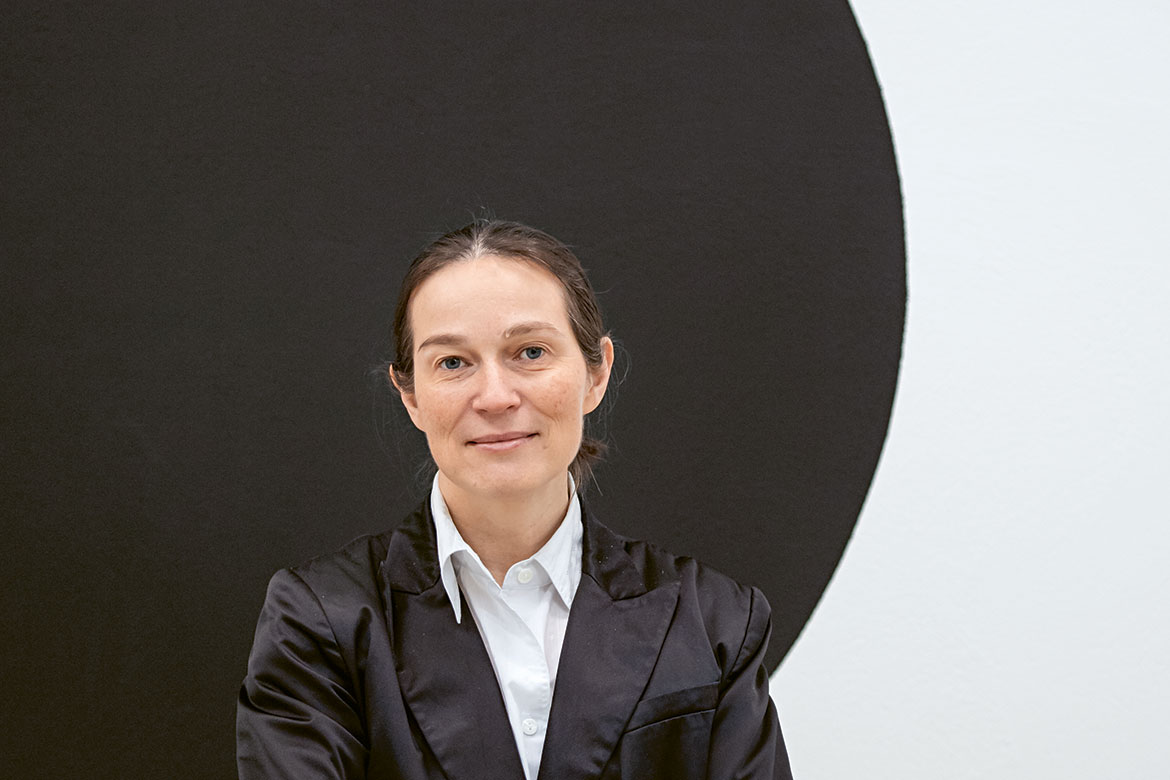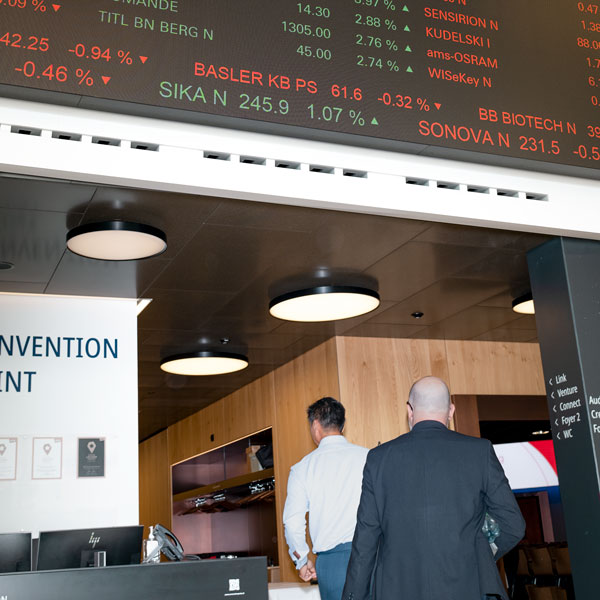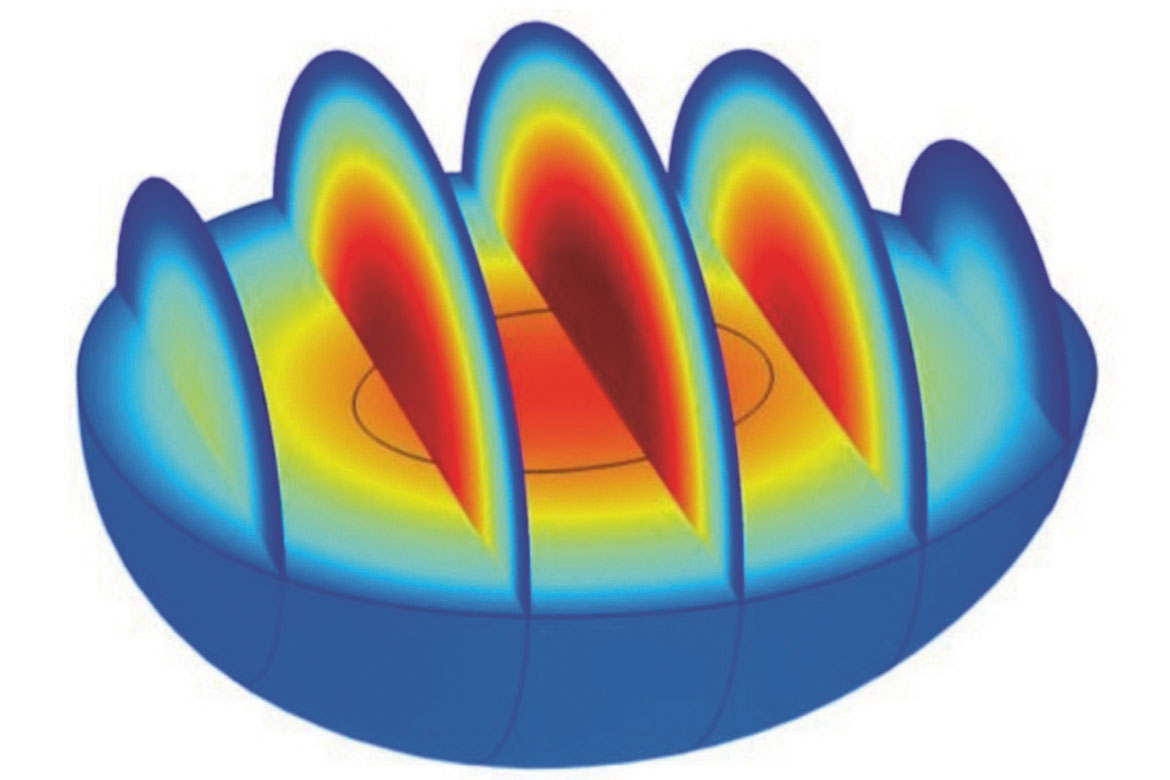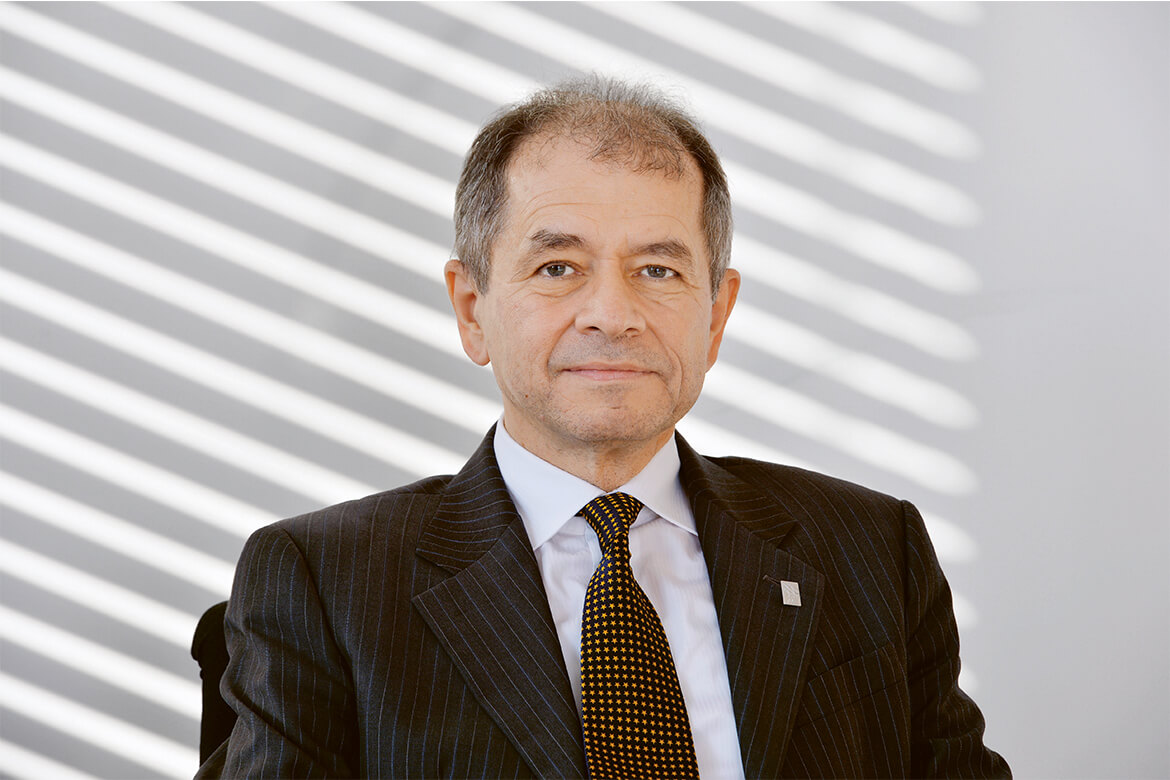The digital theologian
Claire Clivaz is a former pastor and a specialist in New Testament manuscripts who is now bringing the human sciences into the digital age. How, you ask? She’s found her inspiration in the big data techniques of genetics researchers.

Image: Valérie Chételat
It’s daring to think millenary writings can be rhymed with big data. But perhaps that’s why the theologian Claire Clivaz has yet to let go of the idea. “Originality is one of my strengths. I never have to worry about writing something ordinary”, says Clivaz, who is a 40-year-old local to Vaud. Since October 2018 she has been head of the Digital Humanities Group at the Swiss Institute of Bioinformatics (SIB) in Lausanne.
But how does a Bible scholar land a role at an institution whose primary mission is to manage biological and genetic data by the terabyte? Easily! She’s tasked with transferring big-data techniques to the human sciences. This digitisation of the humanities is getting started in her own field of study: the manuscripts of the New Testament. Clivaz is currently analysing the Gospel of Mark as part of “Mark 16”, a project financed by the SNSF.
“There are at least six different endings to the Gospel of Mark, including one that does not mention the appearance of the risen Jesus”, she says. “But when you look at one of the main manuscripts of this variant, you see that there is a space where the writer has left room... This may suggest censorship or a lost ending, and indicates that the text did not stop there”. Clivaz is innovating by using a virtual research environment for work in biblical sciences. In particular, this means easier access to original manuscripts, greater networking among international specialists and better opportunities to compare their respective positions. “My goal is twofold: to understand the diversity of manuscripts reflecting this millennial enigma, and to inspire similar projects in the humanities”.
Clivaz was not born into computer data analysis. In her late teens, she was drawn into studying theology: “I had faith and wanted to become a pastor for the love of people”. Given her thirst for knowledge, and having assured herself that it wasn’t “Catechism 2.0” but rather a discipline capable of “nourishing my intellectual curiosity”, she joined the Faculty of Theology at the University of Lausanne. Her former dean, Eric Junod, remembers her as a “gifted, go-getting student”, whom he had “strongly encouraged to write a doctoral thesis”.
She was to follow that advice, but she also managed to avoid becoming pigeon-holed at her alma mater. In 2000, already a mother of three, Clivaz accepted a part-time position in the parish of Lutry: “There are many uncertainties in an academic career. It’s reassuring to know there’s a job to fall back upon”. She managed to reconcile motherhood, research and her pastorate through a lot of work on evenings. “It was no small miracle!”, she says. “Being in the field and getting involved in social and maternal life has greatly enriched my research”.
In 2003 Clivaz took her entire family to Boston for a one-year research visit at Harvard University. There she met the Swiss theologian François Bovon, who also specialises in the New Testament. “He gave me the confidence to complete my pursuits without censoring myself intellectually. It was at Harvard that I learned about freedom of thought and developed a taste for innovation”.
The digital turn
Two years after returning home, Clivaz ended her pastorate to focus on her academic career. She finished her thesis in 2007 and became an assistant professor of New Testament studies at the University of Lausanne. It is in this context that she began to take an interest in digital technology. “The impetus came as much from a desire to shake up my field as from a pragmatic need to attract the next generation and to find funding”, she says.
This new orientation did not, however, make her life any easier. “You have to curb your zeal for innovation, if you want any at all”, she says. “Innovative research unsettles... I am delighted to be working at SIB, which supports cutting-edge research and women’s careers”. She has dedicated her book “Digital Scriptures” to the institute: In it she explores the influence of new technologies on our relationship with the body and the biblical text.
Today, Clivaz says she is living a period of “fullness”. She invests in the present, which she considers a “gift” and lives “every morning as a new challenge”. Her children are now adults. She puts on her running shoes two to three times a week. “It allows me to think differently, to clarify my thoughts on work and relationships”. She doesn’t miss her pastor’s duties. “Meeting with parishioners who show you confidence beyond words is a great privilege”, she says. Yet she feels she has been able to “see everything that she wanted to see”.
Clivaz also writes a blog on the website of the daily newspaper Le Temps. “It’s a great public stage. I think it’s important to be committed in terms of values in society”, she says. Her key words are openness, freedom, and curiosity towards other people. The topics she covers include online baptism, male contraception and the surveillance society. There’s certainly nothing dull about Claire Clivaz.
From pastor to researcher




